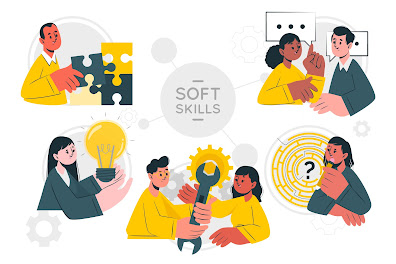Continuing Professional Development (CPD) for Assessors
Importance of Ongoing Training and Development
Continuing Professional Development (CPD) is an essential aspect of maintaining and enhancing the skills and knowledge of assessors. Even after achieving the Level 3 Certificate in Assessing Vocational Achievement, ongoing training and development are crucial to ensure that assessors remain competent, up-to-date with industry standards, and able to effectively support learners in their vocational journey.
Benefits of CPD for Assessors
Several key benefits arise from CPD for assessors:
- Enhanced Assessment Skills: CPD can help assessors refine their assessment techniques, ensuring that they are fair, reliable, and valid.
- Updated Knowledge: CPD keeps assessors informed about the latest developments in their field, including changes in curriculum, assessment methods, and industry standards.
- Improved Learner Support: CPD enables assessors to provide better support to learners by developing their skills in areas such as mentoring, coaching, and feedback.
- Career Progression: CPD can contribute to career progression by demonstrating commitment to professional development and enhancing employability.
- Confidence and Credibility: CPD can boost assessors' confidence and credibility, leading to more effective and impactful assessment practices.
Key Areas for CPD
CPD for assessors should cover a range of areas to ensure comprehensive development. Some key areas to consider include:
- Assessment Methods: Exploring different assessment methods, such as portfolios, presentations, and practical demonstrations.
- Assessment Criteria: Understanding and applying assessment criteria effectively and consistently.
- Internal and External Quality Assurance: Learning about quality assurance processes and standards to ensure the validity and reliability of assessments.
- Feedback and Mentoring: Developing skills in providing constructive feedback and mentoring learners.
- Inclusive Assessment: Understanding and addressing the needs of diverse learners, including those with special educational needs or disabilities.
- Professional Ethics: Adhering to ethical principles and maintaining confidentiality in assessment practices.
- Emerging Technologies: Exploring how technology can be used to enhance assessment and support learners.
CPD Opportunities
There are various opportunities for CPD for assessors, including:
- Workshops and Conferences: Attending workshops and conferences focused on assessment and vocational education.
- Online Courses: Enrolling in online courses or webinars on relevant topics.
- Mentorship Programs: Participating in mentorship programs with experienced assessors.
- Self-Directed Learning: Engaging in self-directed learning activities, such as reading articles or books on assessment.
- Employer-Provided Training: Taking advantage of training opportunities provided by employers.
Questions to Consider
As you embark on your CPD journey, consider the following questions:
- What are your specific development needs as an assessor?
- How can CPD help you improve your assessment practices?
- What CPD opportunities are available to you?
- How can you effectively integrate CPD into your professional development plan?
Conclusion
CPD is an ongoing process that is essential for assessors to maintain their competence and effectiveness. By investing in CPD, assessors can enhance their skills, stay up-to-date with industry trends, and provide valuable support to learners. By prioritizing CPD, assessors can contribute to the success of vocational education and training programs.

.jpg)


Comments
Post a Comment